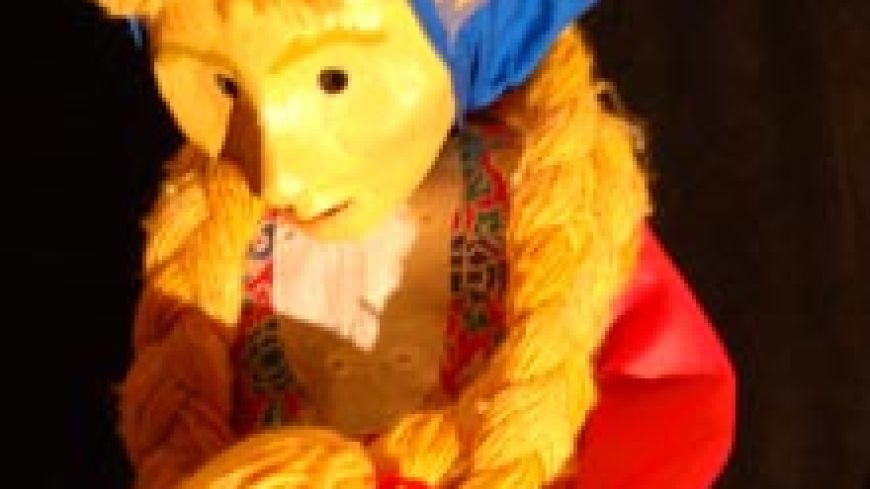
J Simon van der Walt and Margaret Smith (composers)
A slow paced show that plays fast and loose with its dark original.
There is a safe and cosy feel to the wicker work screens draped with some foliage that form the set for Clydebuilt Puppet Theatre’s ‘fun adaptation’ of the Brothers Grimm’s well known tale, Rapunzel. The sounds of cheeping birdsong help to set the disquietingly quiet tone to what is generally known to be a cruel and bitter tale.
The original story tells of a couple who gamble their unborn child for the sake of satisfying the pregnant woman’s cravings for a vegetable that grows in their neighbour’s garden. The garden is owned by a witch who allows the taking of the coveted rampion on the condition that they hand over the child when it is born. When the child named Rapunzel by her false mother grows up, the possessive witch locks her in a tower that she accesses by climbing the girl’s extraordinary hair. A passing prince hears Rapunzel singing and the witch calling for to “Let down your hair.” He uses the call, to climb the tower, he and Rapunzel fall in love and plot escape but the witch outwits them and delivers them a cruel fate.
This version has a new and hermless slant, mixing some random elements like a talking frog and a Peter Piper. There is no sense of desperate craving or longing – only the initially casual need to have an ingredient for a recipe. The magic bone hung round the witch Dame Gothel’s neck is only indicator of her evil ways as otherwise she is portrayed as a fairly pleasant if lonely old woman who talks to the only vegetable that grows in her garden. This space, emptied by a naïve and rather stupid man for the sake of a bean stew, becomes a metaphor for her barrenness - one that is continued in its floral abundance in Rapunzel’s’ presence. There is no indication at the child’s mother’s anguish at losing her first born and the less than handsome Prince Herbert, who anachronistically looks more like a monacled Biggles than a dashing hero, may well have got a good deal in being turned to a frog narrator.
The six rod puppets involved are skilfully manipulated to sounds of specially recorded pleasant enough music by experienced solo puppeteer Steve Smart who encourages some mild audience interaction between acts, yet this show lacks spark and is oddly unengaging. While it is clearly aimed at entertaining a young audience, it is so sanitised that the core lesson of the danger of covetousness, and any sense of this being a salutary or redemptive tale, is sadly lost.
age recommend 4 +
18 February 2015

